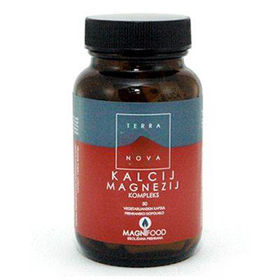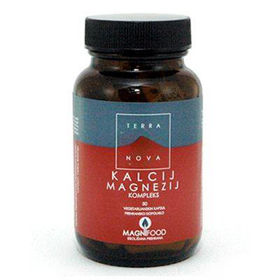Magnesium is one of the six essential macrominerals in the body as it helps build bones, allows nerves to function and is essential for producing energy from food. Magnesium is also an important electrolyte for dehydration, so it is especially important in the summer to be careful to supply the body with it in sufficient quantities.
.jpg)
Magnesium also protects against some chronic diseases, especially those related to aging and stress. It has been shown to have therapeutic value in the treatment of headaches, asthma, heart disease, hypertension and diabetes. Magnesium helps maintain normal muscle and nerve function, maintains heart rhythm, supports a healthy immune system and strengthens bones. It is also involved in energy metabolism and protein synthesis. They have also proven that a large percentage of depressed people suffer from a deficiency of this particular mineral, so it is advisable to check the level of magnesium in the body before using other medications.
Magnesium deficiency can lead to chronic pain, fatigue and insomnia. Its deficiency is characterized by tension throughout the body. Because the nervous system cannot do without magnesium, its deficiency often results in restlessness, tremors, dizziness, headaches and impaired concentration, as well as cramping pain in the stomach. Signs of magnesium deficiency include blinking of the eyelids and recurrent tingling sensations in the fingers, confusion, personality changes, depression, loss of appetite, heart problems, high blood pressure, cramps and heart rhythm disturbances. The need for magnesium often cannot be fully covered by prelua alone. The reason for this is a modern, often unbalanced and insufficiently varied diet. Foods rich in magnesium, such as grains and nuts, are not eaten regularly, let alone often, by today's man. This is especially true for young women, who cover at most half of their daily needs on average.
Deficiency can also be caused by certain physiological conditions such as diarrhea, vomiting, too frequent use of laxatives, frequent drinking of alcohol, diabetes, and thyroid problems. Dr. Danine Fruge, a doctor from a medical center in Miami, Florida, says that only 25 percent of people in the United States have enough magnesium, so as many as 75 percent of adults lack it. It is similar in the rest of the western countries where we have a similar lifestyle. Processed food is rich in vitamins and minerals, so it is important to eat as many natural foods of organic and local production. Another problem is the fact that we eat more and more sugar. For one molecule of sugar consumed, the body needs 54 molecules of magnesium to process sugar. We also live under stress all the time, and the production of stress hormones also consumes magnesium. Our reserves of this important mineral are depleting so quickly. If you are taking painkillers, to regulate blood pressure or any other illness, ilnate may also increase your magnesium intake.
The good news is that we can’t consume too much magnesium. It is best to consume it with food, otherwise choose dietary supplements in which it is combined with calcium. Magnesium helps in the proper assimilation and use of calcium in the body and thus prevents osteoporosis. Dr. Carolyn Dean therefore says, “If we consume too much calcium without enough magnesium. Excess calcium is not used properly and can actually become toxic as it causes diseases such as some forms of arthritis, kidney stones, osteoporosis and calcification of blood vessels leading to heart attack and cardiovascular disease. The effectiveness and benefits of calcium associated with bone health and the prevention of osteoporosis are severely impaired in the absence of adequate levels of magnesium in the body. ”
Without a proper balance of magnesium and calcium, the latter accumulates in the kidneys, where it can cause kidney stones, or in the coronary arteries, which can lead to clogging of the arteries and articular cartilage, rather than in the bones where we need it most.












 Facebook
Facebook
 Instagram
Instagram
 info@moja-lekarna.com
info@moja-lekarna.com

